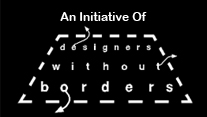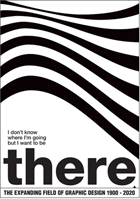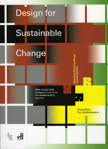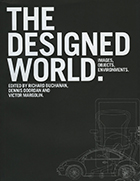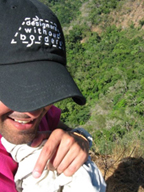David Stairs
Max is over, thank God.
And by Max I mean Adobe Max, that brightshiny overripe bells-and-whistles software tradeshow masquerading as an allconsuming excuse to be pretentiously jejeune.

Say wha—?
You know me; I HATE conferences. So it stands to reason I would criticize any three-day gathering that fancies itself the last-will-and-testament to creativity.
But then, why participate at all? Well, I was trying to get the kids out of the house— my students that is— give ’em a taste of real-al-i-ty because they’re gonna get a bellyfull soon enough, and I felt duty-bound to be able to talk with them about it.
Here’s what I came away with:
• Adobe is a company that surrounds itself with cool, successful people as proof of its “hipness.”
• All people are creative, which must be a tough sell to poor kids from a corporation that pretends it gives stuff away for free when, in fact, it charges top dollar because……
• It is a monopoly that has absorbed or bankrupted its major competitors (my students have never heard of Quark or Aldus or Macromedia)
• And it’s a software developer whose cloud-based products work less well and are much more intrusive than their hard copy products used to be (ready for your next every-five-minute update?)
Mixed in with the fifteen-minute celebrity reflections on “How do you do what you do?” were tutorials (read “product placement”) which, of course were expected. I mean, it’s a trade show, right? But whether hampered by the speed with which Adobe Evangelists rushed through their twenty-minute-presentations, or the difficulty accessing accompanying files (you had to be registered for the session, have the same version of a program, and be fortunate enough to beat the download pressure on Adobe’s servers), you might find the tip-laden exegeses on tiny nested functionalities less than useful.
On the celebrity end of the spectrum, if you could wade through all of the people promoting themselves in addition to the Adobe stuff, there were some lighter moments. Ava Duvernay was, as always, genuine, and genuinely humble. Wes Anderson gave a tour through his obsessive process for making his obsessive movies. Annie Atkins was there promoting her Phaidon book about how to create graphical objects for cinema, like she did in Speilberg’s Bridge of Spies. And there were outliers, too. Ai Wei Wei told his cameraman “Fuck you” at one point, and, after expatiating on the pleasures of eating apples and blackberries, concluded that “chasing after style has ruined many artists.” (Ooops! There goes about 60% of the presenters!) And Taika Waititi not only flipped off the camera operator, but admitted he never went to film school, and while sitting in a cushy armchair urged people to “not get too comfortable,” only to later admit that all anyone really needs to do is “Chill out.”
Unfortunately, these refreshing examples of not towing the corporate mantra were too few, too far between, outweighed by people like the huckster Shepard Fairy collaborating with the Keith Haring Foundation promoting Adobe’s new “Keith Haring brushes” as proof creativity can save the world, to name one egregious example. I’m used to the “Drink the Kool Aid” mentality that pervades most conferences, whether I accept it or not. The one bright spot in the whole shebang was the proof that you needn’t continue paying thousands of dollars to attend in-person conferences since nearly the same thing can be had online for free! And while the celebrity sessions are no longer available, if you need further assurances that you can’t live without Adobe products, all of the tutorial sessions were still available afterward.
In a sense it seems like divine justice that “The Creativity Conference” would not have happened at all in this Covid-locked down world were it not for high-tech innovation. Unfortunately, this creativity enhancing technology is owned and developed by Cisco and Microsoft and Zoom, not by Adobe.
David Stairs is the founding editor of the Design-Altruism-Project.

